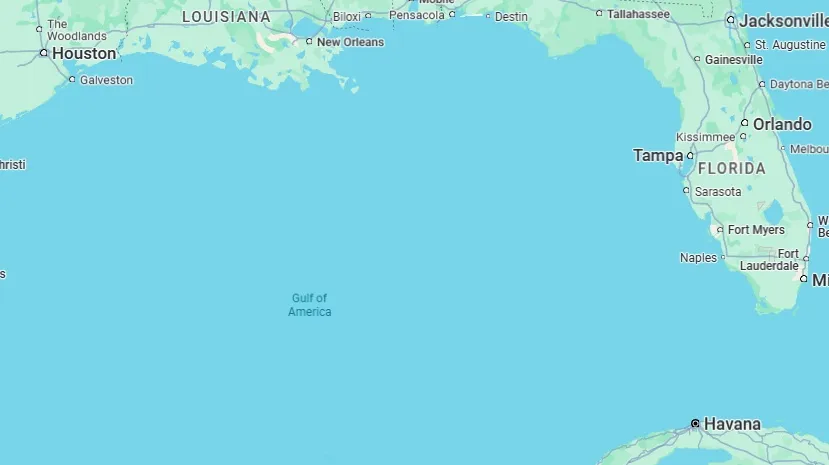Mexico has filed a lawsuit against Google after the tech company updated its maps to label the Gulf of Mexico as the “Gulf of America” in accordance with a U.S. executive order issued by President Donald Trump. Mexican President Claudia Sheinbaum announced the legal action during a press briefing Friday but provided limited details.
The move follows months of tension between Mexico and Google, sparked by Trump’s January executive order renaming the northern portion of the body of water. While the order only applies to U.S. territory, Google updated its platform to reflect the change for users inside the United States.

"We are going to wait. We are already seeing, observing what this would mean from the perspective of legal advice," Sheinbaum said in February, signaling at the time that legal action was possible.
Mexico’s Foreign Relations Ministry previously sent formal objections to Google, urging the company not to adopt the Gulf of America label. Despite this, Google proceeded with the name change and now displays “Gulf of America” within the U.S., “Gulf of Mexico” in Mexico, and “Gulf of Mexico (Gulf of America)” for other users globally.
Sheinbaum argues the change misrepresents territorial sovereignty. “What Google is doing here is changing the name of the continental shelf of Mexico and Cuba, which has nothing to do with Trump’s decree,” she said. According to Sovereign Limits, Mexico controls about 49% of the gulf, the U.S. 46%, and Cuba 5%.
In a letter earlier this year, Google's vice president of government affairs, Cris Turner, defended the update, citing the company’s policy to follow official local naming conventions. Google said it uses government-recognized names in each country, leading to different labels depending on the user’s location.
Meanwhile, U.S. House Republicans passed the “Gulf of America Act” in a 211-206 vote to codify Trump’s executive order into law. The bill now heads to the Senate, escalating a dispute that could have broader diplomatic and commercial consequences between the neighboring countries.
